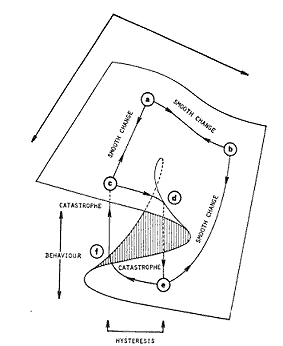The Long View: Richard Feynman and Isaac Asimov on Spelling Reform

It is not just myself, John Reilly, and Emil Kirkegaard who talk about this.
I will note that I'm a little dubious of the idea that orthographic reform will boost English reading ability dramatically.
Richard Feynman and Isaac Asimov on Spelling Reform
by John J. Reilly
Note: This essay appeared in issue No. 25 of the Journal of the Simplified Spelling Society (1999/1).
The subjects of this note were both American scientists who became major figures in popular culture. [1] The physicist Richard Feynman (1918-1988) is best known for the work in quantum electrodynamics that won him a Nobel Prize in 1965. His career extended from work on the Manhattan Project in the early 1940s to a conspicuous role on the official commission of inquiry into the causes of the space shuttle Challenger disaster of 1986. Isaac Asimov (1920-1992) was a biochemist who taught at Boston University for many years, but became famous as a prolific writer of science fiction and popular science. Estimates of the number of his books run to over 500; he himself lost count.
Both Feynman and Asimov became public sages of a sort. Many scientists, given a little encouragement, are willing to express opinions on anything under the sun, but these two belonged to the rather smaller class of such people whose opinions were actually sought by a wide audience. Considering the range of topics on which they commented, it is not really surprising that they touched on the reform of English spelling. While both advocated reform, neither had more than a passing interest in the subject. The few remarks I discuss here may be all they ever had to say on the matter.
While my research has not been exhaustive, the only recorded remarks by Richard Feynman on spelling reform I have been able to discover were made in the course of a talk entitled "This Unscientific Age," one of the John Danz Lectures that Dr. Feynman delivered at the University of Washington in April, 1963. [2] The burden of that talk is that social and scientific progress is inhibited by received opinions. In the course of his remarks, Feynman compares psychiatrists to witchdoctors and professors of English to medieval scholars who neither jettisoned old errors nor made useful innovations. Having disposed of literary scholarship, he went a step further: "Now let me get to a lower level still in this question. And that is, all the time you hear the question, `Why can't Johnny read?' And the answer is, because of the spelling."
After making a few allusions to the history and theory of alphabetic writing, Dr. Feynman observes that "things have gotten out of whack in the English language," which leads him to ask, "[w]hy can't we change the spelling?" In what may be taken as an expression of exasperation with his colleagues in the liberal arts, he declares: "If the professors of English will complain to me that the students who come to the universities, after all those years of study, still cannot spell `friend,' I say to them that something's the matter with the way you spell `friend.'"
So obvious does Dr. Feynman find the need for improvements in English spelling that he has trouble seeing what arguments could be raised against such a project: "[I]t can be argued ..... that [language reform is] a question of style and beauty in the language, and that to make new words and new parts of speech might destroy that. But [the professors of English] cannot argue that respelling the words would have anything to do with the style. There's no form of art form or literary form, with the sole exception of crossword puzzles, in which the spelling makes a bit of difference to the style. And even crossword puzzles can be made with a different spelling."
This brings us to the question of how a reform might be accomplished: "And if it's not the English professors that do it, and if we give them two years and nothing happens -- and please don't invent three ways of doing it, just one way, that everybody [can get] used to -- if we wait these two or three years and nothing happens, then we'll ask the philologists and the linguists and so on because they know how to do it. Did you know that they can write any language with an alphabet so that you can read how it sounds in another language when you hear it? [sic] That's really something. So they ought to be able to do it in English alone."
In some ways, Feynman's ideas are most illuminating for what they fail to consider. Even a cursory acquaintance with the history of attempts to reform English spelling shows that more than "two or three years" have been needed to devise a universally acceptable reformed system. Experience has also shown that, at any one time, there are likely to be far more than "three ways" under consideration as candidates for such a system. One interesting point is that Dr. Feynman seems to regard the problem as purely technical. It should be entrusted to the "philologists and linguists," who at least use an abstruse symbology, rather than to those frowzy-minded professors of English.
Reading this, I was reminded of a critique I read some time back, entitled Higher Superstition, [3] that sought to explain the postmodern assault on the objectivity and institutional prestige of the natural sciences. According to the authors, the attempt to reduce science to a merely cultural phenomenon is revenge for the dismissive attitude taken by natural scientists toward the liberal arts during the late `50s and early `60s, when the hard sciences got all the grant money.
Of course, the most important element that is lacking in Dr. Feynman's remarks is any consideration at all of how a reformed system would be implemented. The assumption seems to be that, once the linguists have cooked up a way to reproduce the phonetic precision of the IPA in the English version of the Latin alphabet, then the new spelling could be adopted simply by fiat. Again, history suggests otherwise. As we turn to Isaac Asimov's thoughts on spelling reform, we will find more serious attention to the problem of how to get people to use a reformed system. There are, however, other conceptual problems with what this popular sage has to say.
In 1982, Dr. Asimov published two essays that touched on spelling reform. In the later of the two, "A Question of Spelling," [4] he followed Dr. Feynman in linking the deficiencies of English spelling with the problems of education. The particular occasion for the essay, he says, was a mail solicitation from an organization calling itself the "Reading Reform Foundation." The letter recited the familiar complaints about the high degree of functional illiteracy in the United States. However, Asimov was not much persuaded by the Foundation's argument that the key to alleviating the problem is better teaching methods (which no doubt the letter asked him for money to promote). He was particularly unimpressed with the letter's claim that 87% of all English words are spelled phonetically. That left 13% that were not phonetically spelled, and those were likely to be the most commonly-used words in the language.
Unlike Feynman, Asimov jumps right in and makes a stab at some suggested respellings. Consider "through," "coo," "do," "true," "knew" and "queue," he asks. Why not just spell them "throo," "koo," "doo," "troo," nyoo" and "kyoo"? These respellings would in fact fit within some familiar reform proposals, though perhaps few reform advocates would go along with his assertion that the obvious respelling of "night" should be "nite." Then there is a larger problem.
Noting that the plural of "man" is "men," but that young children will naturally assume that "mans" is the plural, he goes on to assert that the children are right. Thus, along with his advocacy of spelling reform, he includes an argument for a completely regularized grammar, though he does not elaborate on it as fully. The suggestion, "Why not reform grammar, too?" is a common retort made by people who have just been introduced to the idea of spelling reform. Why some people confuse these things is a mystery to people who don't confuse them. In any case, Asimov's essay is the first instance I have ever seen of someone who equated spelling and grammar and who also proposed to reform them both. [5]
Asimov does acknowledge that a great deal of trouble would be occasioned by implementing the reforms he proposes. However, he give three reasons for why it would be worthwhile for everyone to take the trouble:
(2) The reforms, once in place, would promote literacy. This would boost worker productivity and assist in enhancing national prosperity.
(3) Earth is in need of a common second language, and English is the most widespread current candidate. Removing the idiosyncrasies of English would promote its spread, which would promote international understanding and world peace.
The gist of the article is the suggestion that computers, particularly word-processing dictionaries, could greatly facilitate a transition to reformed spelling. Certainly he did not think that much hope of change was offered from any other quarter: "...I think that the home computer industry won't be putting out reformed `dictionaries' in response to an independent movement for spelling reform. I have no hope for an independent movement being powerful enough to achieve anything."
Nevertheless, history was on the side of spelling reform. We could expect to see modifications in the graphical representation of English in order to make it easier for machines to use: "...I think it is inevitable that computers [will] be designed to read the written word, and reproduce it; and even to hear the spoken word and put it into print or follow its orders. This can be done with the language as it is, but how much easier it would be if spelling is phonetic and grammar is regular." How much indeed.
In this essay, Asimov seems to have foreseen a great deal of software that had not been written yet. Still, despite his genuine prescience, the arrival of the technologies he anticipated has made little impact on the chaotic nature of English spelling. Neither is there much sign that anyone is about to take his suggestion to create an "Academy of Spelling Reform," a body he hoped would be authorized to issue those new "word-processing dictionaries." (The term "spell-checker" had perhaps not yet been coined at the time this essay was written.) History has taken a frustrating turn. In 1900, it was common sense to many educated people that English spelling should be reformed, while the suggestion that machines might someday read texts aloud was inconceivable even to science fiction writers. Today, just shy of the year 2000, I have software that reads texts aloud, while it is spelling reform that has become inconceivable.
In closing, it should be emphasized again that neither Richard Feynman nor Isaac Asimov was greatly interested in spelling reform. To them, English spelling was just another inheritance from an irrational past that needed to be restructured. It is clear from what we have seen that their accomplishments in other areas gave them no special insight into the question. Nevertheless, it is worth considering their ideas in some detail and spreading awareness of them further. The substantial posthumous fame of Feynman and Asimov makes even their slight engagement with the subject a possible enticement for their many admirers to examine the question more closely.
NOTES[1] Elaborate websites with eponymous URLs have been dedicated to each, a good indication that they have risen to at least subcultural significance. As of November 1998, the chief website relating to Feynman was at http://www.feynman.com. The most useful Asimov sites are at http://www.clark.net/pub/edseiler/WWW/asimov_home_page.html and http://www.asimov.com. All three links have extensive bibliographical information. The material relating to Asimov is particularly comprehensive.
[2] "The Meaning of It All: Thoughts of a Citizen Scientist," by Richard Phillips Feynman, (Helix Books, 1998), page 116.
[3] Higher Superstition: The Academic Left and Its Quarrels with Science, by Paul R. Gross and Norman Levitt (The Johns Hopkins University Press, 1994), page 86.
[4] "A Question of Spelling," in The Roving Mind, by Isaac Asimov, (Prometheus Books 1983), page 340. First published in Popular Computing (July 1982). An earlier essay, which I have been unable to obtain, is "Spell that Word!" in The Dangers of Intelligence, by Isaac Asimov, (1986). First published in American Way (March,1982).
[5] There are three conventional answers to the assertion that grammar reform and spelling reform are equivalent:
(b) English grammar is not particularly irregular compared to most European languages. The same cannot be said of the written form of English as compared to the written forms of those languages.
(c) Shut up.
End
Copyright © 1998 by John J. Reilly



Comments ()